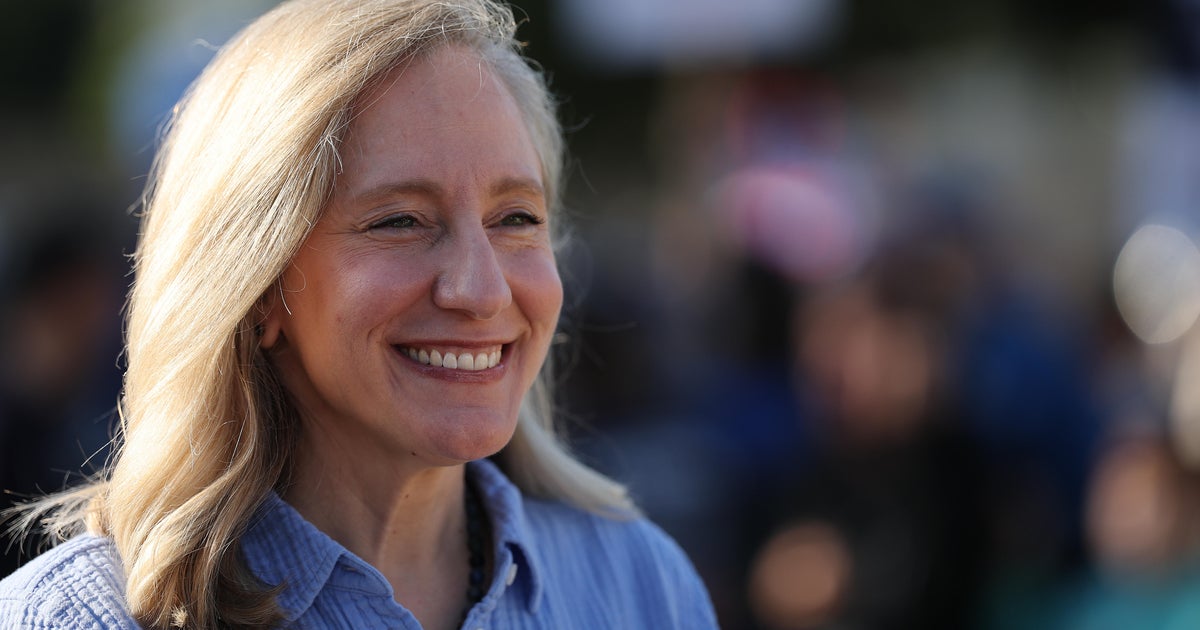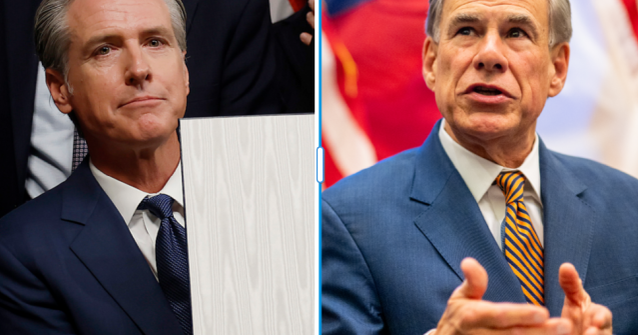Former GOP Lawmakers Endorse Democrat Abigail Spanberger for Virginia Governor

Introduction
The race for Virginia governor is heating up with early in-person voting starting this Friday. Republican Winsome Earle-Sears and Democrat Abigail Spanberger are the top contenders, and the latter just received a major show of support from two former GOP lawmakers.
Key Details
The two former GOP lawmakers, Barbara Comstock and Scott Taylor, have both endorsed Spanberger in her bid for Virginia governor. This is a significant development, as both Comstock and Taylor have been vocal critics of former President Trump and have been working to bring more moderate voices to the Republican party. Their support for Spanberger highlights her appeal to voters across party lines and her ability to bridge the divide in today's political climate.
Impact
The endorsement from Comstock and Taylor not only boosts Spanberger's chances in the governor's race, but it also speaks to the changing landscape of the Republican party. As more moderate voices speak out against divisive politics, candidates like Spanberger are able to gain support from both sides of the political spectrum. This could be a sign of a shift in the GOP and a potential path forward for more centrist candidates in future elections.
About the People Mentioned
Abigail Spanberger
Abigail Anne Davis Spanberger is an American politician and former intelligence officer who is the governor-elect of Virginia. Born on August 7, 1979, in Red Bank, New Jersey, she moved to Virginia as a teenager and later graduated from the University of Virginia with a Bachelor of Arts in French language and literature. She also holds a Master of Business Administration from Purdue University. Spanberger began her career in public service as a federal law enforcement officer with the U.S. Postal Inspection Service, focusing on narcotics and money laundering cases. She then joined the Central Intelligence Agency (CIA) as a case officer, where she worked undercover, managed assets, and contributed to counterterrorism efforts. After several years in the private sector, she entered politics, motivated by concerns over partisan division and threats to healthcare access. In 2018, Spanberger was elected to the U.S. House of Representatives, representing Virginia’s 7th Congressional District. She was the first Democrat and the first woman to hold that seat in over 50 years. During her three terms, she served on the House Permanent Select Committee on Intelligence and the House Agriculture Committee. Spanberger was recognized for her bipartisan approach, sponsoring legislation that addressed issues such as fentanyl overdoses, natural resource protection, and prescription drug pricing. She was ranked as the most effective member of Congress on agriculture issues by the Center for Effective Lawmaking. Spanberger is known for her focus on lowering costs for families, supporting veterans, and protecting reproductive rights. In 2025, she was elected governor of Virginia, becoming the state’s first female governor. She is married to Adam Spanberger, an engineer, and they have three daughters. Her current priorities include strengthening public schools, making Virginia more affordable, and safeguarding fundamental rights.
About the Organizations Mentioned
GOP
The **GOP**, or **Grand Old Party**, is the widely recognized nickname for the **Republican Party** of the United States, a major conservative political party founded in 1854. It originated from anti-slavery activists opposing the Kansas-Nebraska Act, uniting former Whigs and Free Soilers with a platform centered on halting the expansion of slavery. The party's early historic milestone was the election of Abraham Lincoln in 1860, which precipitated the Civil War; under Lincoln’s leadership, the GOP focused on preserving the Union and abolishing slavery[1][2][3]. Throughout its history, the Republican Party has evolved from its abolitionist roots to champion business interests, industrial growth, and economic policies favoring limited government intervention. In the late 19th and early 20th centuries, it promoted protective tariffs and infrastructure development. The party experienced fluctuating influence, losing ground during the New Deal era but regaining prominence with Dwight D. Eisenhower’s presidency in the 1950s, marked by moderate conservatism[1][2]. Today, the GOP advocates for reduced taxes, conservative social policies, limited government regulation, strong national defense, and states’ rights. It remains one of the two dominant forces in American politics, consistently shaping legislative agendas and national discourse[2]. The party is organized and led nationally by the **Republican National Committee (RNC)**, which manages fundraising, election strategies, and the party platform, coordinating efforts across states and counties under the leadership of a chairman[3][4]. Notably, the acronym "GOP" was popularized in the late 19th century and originally stood for "Grand Old Party," symbolizing the party's legacy in preserving the Union and championing liberty. It is now a common term in political commentary and media[3][5]. In recent years, the GOP has undergone significant membership changes in Congress and leadership adjustments, reflecting its dynamic role in U.S. politics as
Republican Party
The **Republican Party**, also known as the **GOP (Grand Old Party)**, is one of the two major political parties in the United States, founded in 1854 primarily by anti-slavery activists opposing the Kansas-Nebraska Act and the expansion of slavery into U.S. territories[1][5]. It was formed from a coalition of former Whigs, Democrats, and Free Soil party members who shared opposition to slavery and a desire for a national political force promoting economic development and social order[2][5]. The party's early base included northern Protestants, businessmen, factory workers, professionals, and prosperous farmers. It strongly supported pro-business policies like the national banking system, the gold standard, railroads, and high tariffs[1][3]. Abraham Lincoln, the first Republican president elected in 1860, led the party through the Civil War, championing the abolition of slavery and the preservation of the Union. This solidified the GOP’s dominance in national politics for decades, especially in the North, while it remained weak in the South[1][5][6]. Historically, the Republican Party was instrumental in major social reforms, including the Emancipation Proclamation and the passage of the 13th, 14th, and 15th Amendments, which abolished slavery, guaranteed equal protection, and secured voting rights for African Americans, respectively[6]. The party also supported women's suffrage early on, backing the 19th Amendment[6]. In the 20th century, Republicans were associated with both conservative economic policies—favoring reduced taxes, limited government regulation, and individual economic freedom—and a strong national defense[7]. The party experienced ideological splits, notably in 1912 when Theodore Roosevelt led a progressive faction away from the conservative wing[1][5]. Today, the GOP continues to promote conservative social policies and states’ rights, opposing extensive federal intervention and advocating free-market principles[7]. For readers interested in business and technology,

















